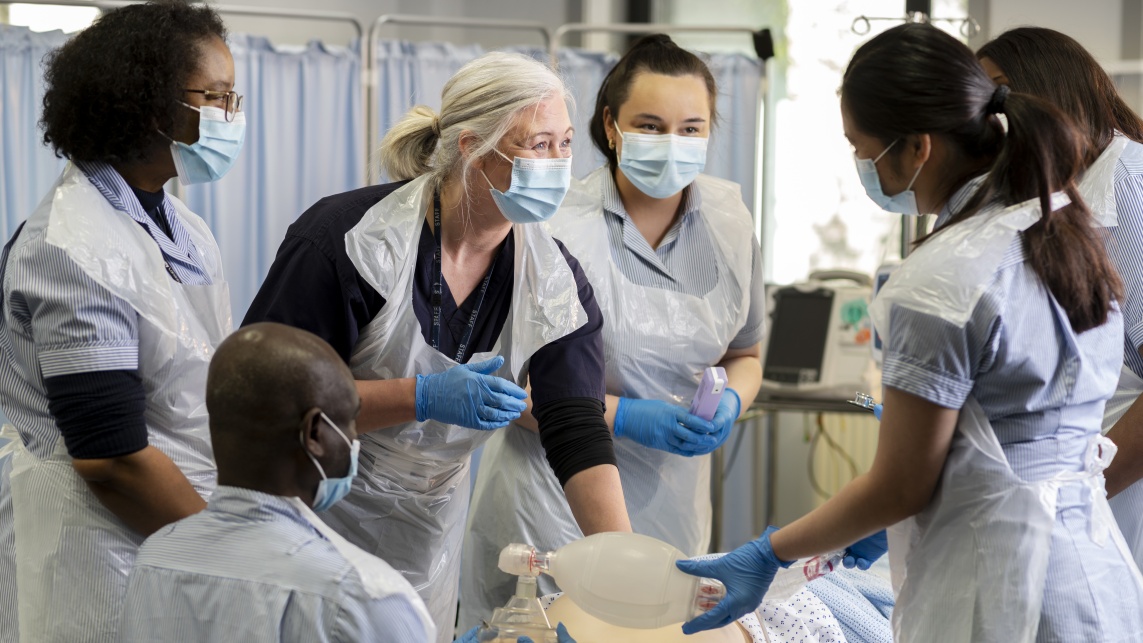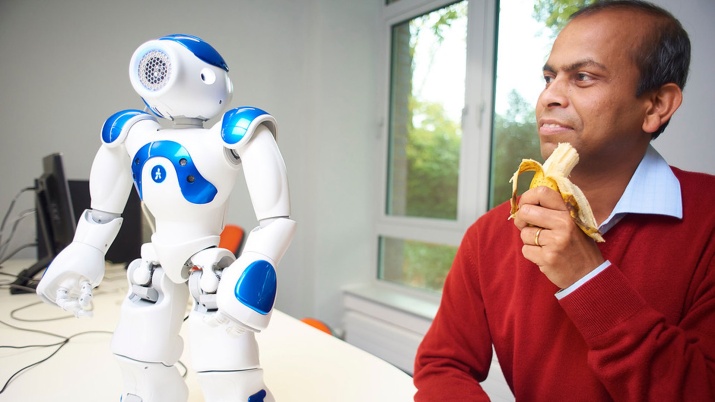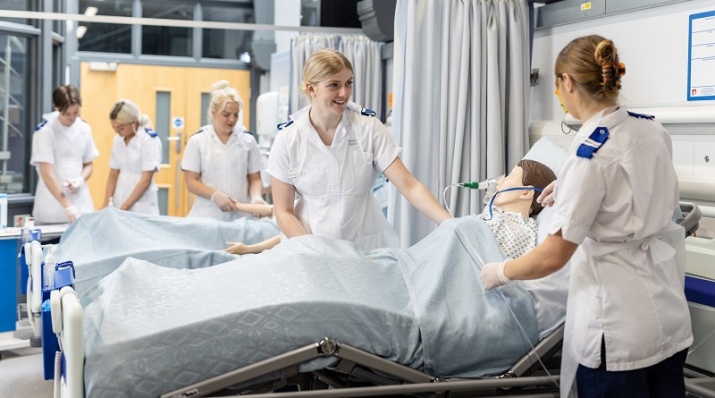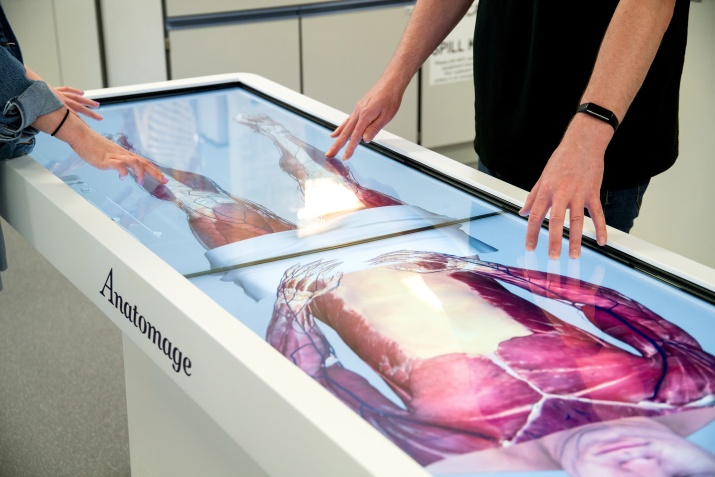Stay up to date with our work
Our monthly updates are a great way for you to stay up to date with our work, events, and higher education news.

Our position paper and case studies on how universities will be central to educating the NHS healthcare workforce of the future.
Universities asked for the NHS Long Term Workforce Plan. They helped shape it, welcomed it and will be central to its delivery.
Universities fully recognise the challenges involved in such a radical expansion and transformation of health education system capacity.
Success will depend on cross-party commitment to support and fund the plan across the next 15 years, which includes general elections and spending reviews.
For universities and the NHS to work together successfully, five system conditions need to be addressed:
There are also five threshold conditions that need urgent attention:

Professor Ardhendu Behera and 'Robbie the Robot', Edge Hill University
Virteasy V2 Dental Simulator, Newcastle University

Virtual ward, University of Leeds

Medical virtual dissection tables, University of Central Lancashire
During the pandemic, Anglia Ruskin University created Hilda’s Home, the UK’s first simulated placement worth course credits.
Students visited 85-year-old Hilda in her home through virtual reality, developing their skills safely and enabling student nurses to continue in their careers.
A medical simulation game by the Bournemouth University and University Hospitals Dorset is helping junior doctors prepare for the pressures of working on a hospital ward.
The game features different conditions including meningitis, and trainees must care for multiple patients throughout their shift.
Investment in facilities at UCLan has seen the university introduce state-of-the-art medical virtual dissection tables.
The life-size 3D devices contains real patient CT scans and cadaveric images and allow students to investigate the body by virtually dissecting it.
AI is beginning to play a key role in the way medical imaging can help make more accurate and timely diagnoses of health problems.
Dr Malamateniou at City, University of London led the uni to become the first in the Europe, Middle East and Africa region to offer an AI module to its radiography programme.
At Edge Hill University, Professor Ardhendu Behera is leading research on how AI may help early diagnosis of dementia.
'Robbie the Robot' uses AI to recognise symptoms by watching Emmerdale – studying the facial expressions and body language of Ashley, a character with the condition.
The University of Gloucestershire's ‘Nurse on Tour’ bus provided a drop-in facility for people with health concerns.
Nursing students provided preventative care advice, diagnosed symptoms and identified a number of conditions that required referrals, including a suspected cancer case.
10% of those in the intensive care community are neurodivergent or have a disability, yet only 30% have reasonable adjustments. Kingston University have prioritised inclusivity in admissions and teaching of their critical care course, recruiting many more neurodivergent students.
The university also provides new pharmacy labs which enable students simulate real-life healthcare settings in a safe environment. The suites include a mock hospital ward, pharmacy dispensing suite and GP surgery.
The University of Leeds is using virtual wards to train doctors and nurses together in a real-world environment.
Virtual clinical placements personalise learning and reduce the time required for training, while maintaining the highest professional standards.
Bob is a £90k full-body simulator mannequin who blinks, breathes, has a pulse and even talks, created by the University of Liverpool.
He provides undergraduate students with the invaluable opportunity to practice different medical procedures in a realistic but safe environment.
Newcastle University is training dental professionals using virtual reality enabled haptic dental simulators, bringing lifelike simulation of clinical scenarios, such as real-time feedback of cutting through dental tissues and replicating dental implant placement.
The simulators are part of Newcastle's new £5.5 million dental skills facilities, opening in 2024.
'Maya' is a wireless birthing mannequin at the University of Northampton that provides students with hands on opportunities to develop their midwifery skills.
Maya provides a realistic birthing experience for students to gain supervised practice and allows students to visualise a birth using augmented reality.
Kent Community Health Foundation Trust are overcoming nurse shortages through Open University's higher and degree apprenticeships, making Nurse Associate education more accessible to the local community.
The apprenticeships enable the trust to recruit from a much more diverse talent pool, opening doors for people who don’t have formal qualifications or those with financial and caring responsibilities.
Simodent Trainers at Queen Mary University of London's Institute of Dentistry provide highly realistic virtual reality, allowing students to practice dental preparations using a real dental handpiece with realistic force feedback.
Students develop skills and confidence more rapidly and transfer safely to patients sooner.
Our monthly updates are a great way for you to stay up to date with our work, events, and higher education news.